
Distilled agave-based beverages are a top Mexican export. In fact, they add nearly $2.5 billion to the Mexican economy annually. That’s more than half a billion liters of tequila and mezcal each year, much of it flowing into the United States, where tequila is more popular than ever.

Are You Ready To Work Your Ass Off to Earn Your Lifestyle?
Are you tired of the daily grind? With a laptop and an internet connection I built a small website to generate income, and my life completely changed. Let me show you exactly how I’ve been doing it for more than 13 years.
The growth of tequila in the United States is largely due to its increasing popularity with women, who now make up 52% of tequila drinkers. Tequila consumption by women is sure to grow, with 29% of those women aged 25-34.
Tequila and mezcal, the two agave-based liquors, are also a growing market for women entrepreneurs. In just the past few years, the amount of women-owned tequila and mezcal brands has grown exponentially.
Check Out These Global Tequila and Mezcal Brands Owned by Women
There are at least 18 prominent tequila and mezcal brands now owned by women. With both female entrepreneurship and interest in tequila increasing, that number is sure to rise. So let’s take a closer look at these 18 tequila and mezcal brands and the stunning women that own them!
818 Tequila

American model and media personality Kendall Jenner owns 818 Tequila. Named after the area code covering northern Los Angeles, Jenner announced the launch of 818 Tequila in February of 2021. Since then, the brand has won at least 16 taste tests and comes in three variations: Blanco, Reposado, and Añejo.
As the maker of 818 Tequila, Jenner has been vocal about the brand’s commitment to sustainability and supply chain transparency “from the agaves we grow to the production of the bottle.” No fossil fuels are used to produce 818 Tequila. Instead, the distillery runs on biomass and solar power. 818 Tequila is distilled in the highlands of Jalisco, Mexico.
La Gritona

Melly Barajas owns the distillery that makes La Gritona, located in Valle de Guadalupe, Jalisco. Melly owns several tequila brands and was one of the first women to break into the traditionally male-dominated field of tequila distilling. She runs her own distillery, Vinos y Licores Azteca, with an all-women staff.
La Gritona Reposado is a craft blue tequila made from mature agave plants cut less than 24 hours before cooking, preserving the agave’s naturally sweet flavor. It is then distilled twice before being stored in Jack Daniels whiskey casks for eight months. Having won many awards, it was recently recognized by Wine Enthusiast as a Top 100 Spirit.
El Conde Azule
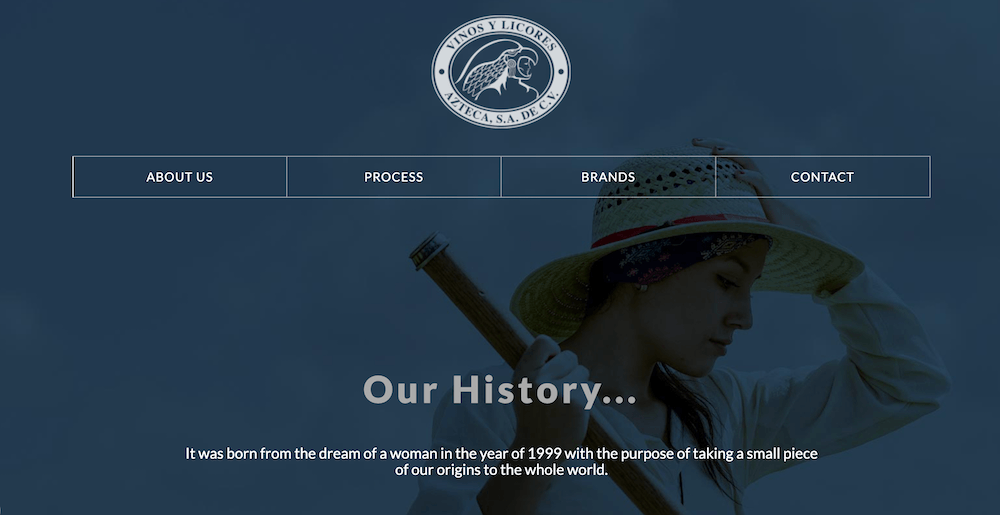
Another Melly Barajas brand is El Conde Azule. This is a top-shelf tequila prized by collectors for its unique taste as well as its Italian-crafted, hand-blown bottle, painted with 18-Karat gold. El Conde Azul comes in three varieties—silver, reposado, and añejo.
- El Conde Azul Silver is newly distilled.
- El Conde Azule Reposado has been aged for eight months.
- El Conde Azule Añejo has matured in white oak barrels for three years.
As in most tequilas, the color gets progressively darker the longer it is aged, with Silver almost as clear as water.
Casa Dragones
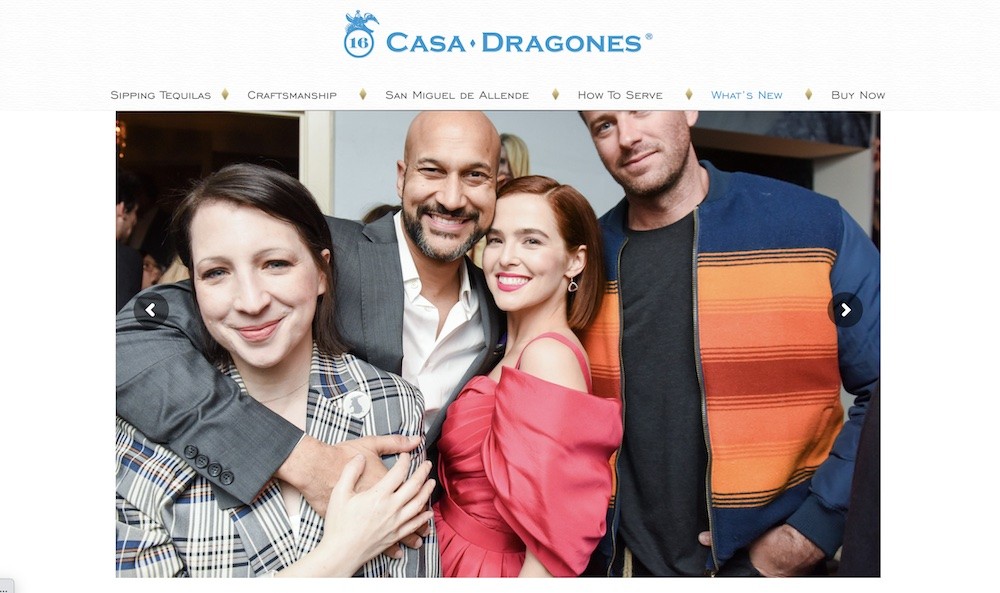
Bertha Gonzales founded the Casa Dragones tequila brand in 2009. Though distilled in Jalisco, Bertha bases her brand in San Miguel de Allende, near the storied stables of the Dragones cavalry, which were instrumental in the Mexican War of Independence.
Named by Forbes as one of the 50 most powerful women in Mexico, Gonzales is the first woman ever to be certified as a Master Distiller. She has also been called the “First Lady of Tequila.”
Casa Dragones comes in Blanco, Barrel, and Joven blends. Casa Dragones Joven is its top blend, retailing for more than $250 per bottle. This sipping tequila is lauded for its smooth taste and ability to pair well with food.
Yola Mezcal

Founded by Yola Jiminez, Gina Correll, and Lykke Li, Yola Mezcal is based on a family recipe handed down by Yola’s grandfather. As well as being women-owned, Yola Mezcal’s bottling plant in San Juan del Río is also staffed entirely by women.
Yola Mezcal is committed to sustainability in its growing, processing, and bottling. Solar power provides electricity to much of their operations, and rainwater catchment systems help preserve water.
Próspero Tequila

Stella Anguiano is another master distiller whose signature brand, Próspero Tequila, is hand-crafted from start to finish, including the bottle and label. Like many other tequilas on this list, Próspero Tequila comes in Blanco, Reposado, and Añejo varieties, with the Reposado being its top-shelf product.
Stella Anguiano also partners with international pop singer and Latin American sensation Rita Ora, who serves as the Chief Creative Partner of Próspero Tequila. She’s even invented her own RitaRita recipe, a play on the classic margarita, as follows:
- 2 oz. Próspero Blanco Tequila
- 1.25 oz fresh strawberries, pureed
- 1 bar spoon of balsamic vinegar
- .5 oz. orange liqueur
- .75 oz lime juice
- 1 oz. wildflower honey
- 3 -4 leaves of fresh basil
Satryna Tequila
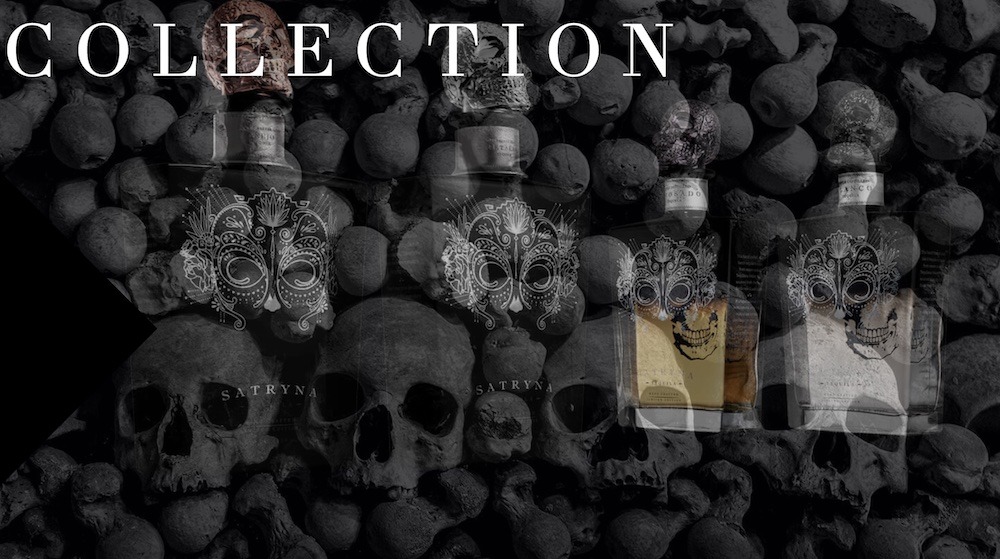
Nitzan Marrun founded Satryna Tequila to bring her family’s artisanal tequila-making recipe to the world. Originally, the Marrun family made the tequila exclusively for themselves before Nitzan finally convinced them to let her release it.
Nitzan markets her tequila by highlighting the relatively healthy properties of the drink, at least compared to other alcohols. Ads featuring Satryna Tequila note that it is 100% vegan with no gluten or carbohydrates.
The purity of their 10 to 12-year-old blue agave plants allegedly ward off the symptoms of feeling hungover, a condition which Nitzan attributes to lesser tequilas that have added sugars and corn syrup.
Doña Vega Mezcal

Oaxacan-based women own and produce Doña Vega Mezcal. Owner and founder Sonya Vega was committed to creating a mezcal without the intense smoky taste that is a frequent feature of mezcals (and why they are often used in cocktails). They only use agave plants that are at least eight years old to produce their distinctively smooth and well-rounded mezcal.
Doña Vega stores its mezcal in oak barrels for added richness and comes in two varieties. Doña Vega Espadín has a roasted agave and mint taste and is known for its remarkable smoothness. Doña Vega Tobalá is made from a rarer form of agave with a natural range of flavors, including vanilla, cocoa, and nougat.
Curamia Tequila
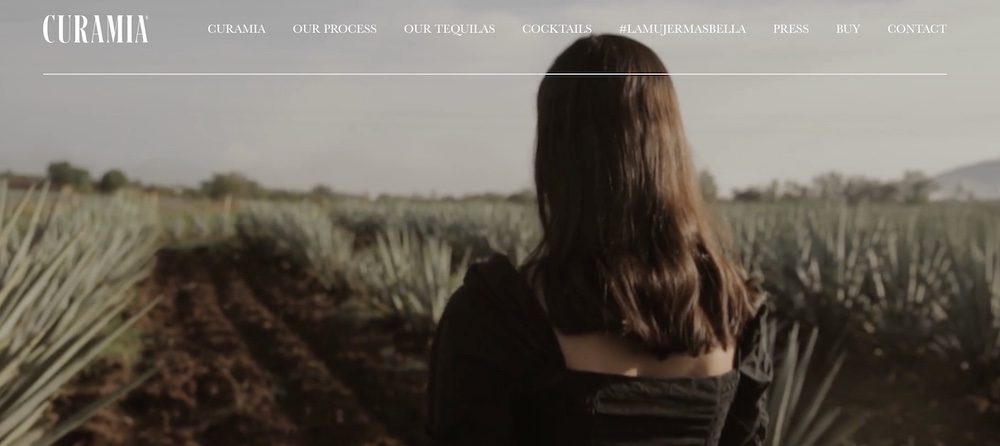
When Dafna Misrahi founded Curamia Tequila in 2020, she did so to honor her grandmother, who was once rumored to be the most beautiful woman—La Mujer Mas Bella—in all of Guadalajara.
Curamia is another brand focused on health and sustainability. The fact that the Spanish name means “my cure” in English is no accident. Curamia uses steam instead of water to process their agave into tequila, which, according to the brand, is good for the environment and results in a purer taste.
Curamia Blanco retails for around $41 per bottle and is currently available on much of the East Coast. The brand plans to expand to more locations soon.
FINO Tequila

Sonali Patel and Jana Iyer own FINO Tequila, another Jalisco-based brand. Both had an entrepreneurial background when they decided to break into the male-dominated field of tequila making. So intent were they on making their tequila a success, the name they settled on is an acronym for Failure is Not an Option.
FINO is another small-batch crafted tequila with extra care taken in the cooking process, which lasts up to 60 hours. After cooking, the tequila is double distilled in copper stills giving FINO its distinctive flavor. FINO comes in Blanco, Reposado, and Añejo varieties.
Tequila Espectacular

Tequila Espectacular is yet another Melly Barajas brand. It is a genuinely distinctive bottle of tequila with three small bottles stacked on top of each other to make one regular-sized tequila bottle. This three-in-one stacked bottle system combines Blanco, Reposado, and Añejo in the same larger bottle, allowing customers to taste each individually without buying three separate bottles.
Distilled in stainless steel tanks, each of the three Tequila Espectacular varieties is perfect as a sipping tequila or on the rocks. As usual, the Blanco is not aged, but the Reposado and Añejo are aged eight months and three years, respectively.
With its crisp taste, all three varieties of Tequila Espectacular pair well with fresh dishes like salads and lightly cooked fish.
Ego Tequila
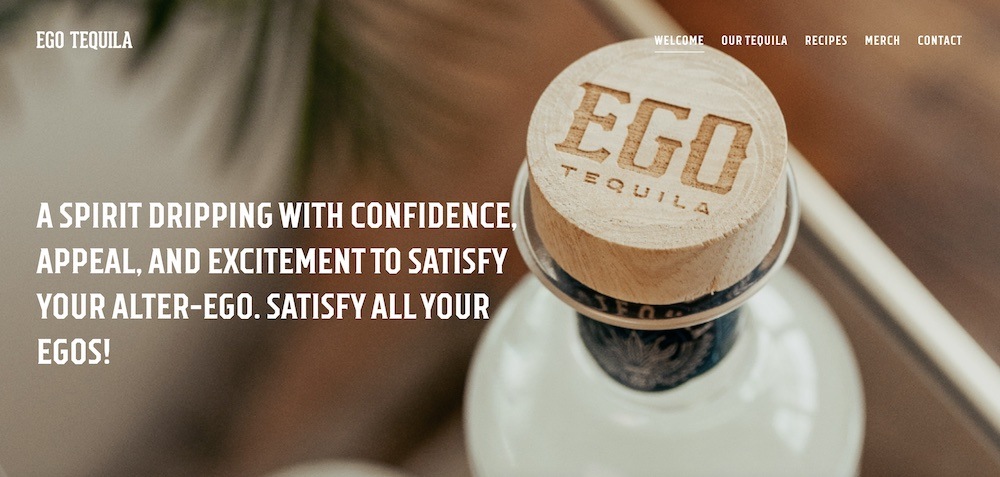
Rikki Kelly started Ego Tequila when she was only 24 years old. As one of the first Black female tequila brand owners, breaking into the tequila business was an uphill climb. Ego Tequila has consistently grown since its inception to become one of the more successful brands in Texas.
While Kelly and her headquarters are located in Texas, the tequila is made in Jalisco by a highly-awarded, family-owned distiller. Ego Tequila comes in Blanco and Reposado varieties. Currently, Ego Tequila is only available regionally, but Kelly is working on making Ego Tequila available throughout the United States and, hopefully, internationally.
Casa del Sol Tequila

Eva Longoria is the owner and co-founder of Casa del Sol Tequila. Longoria was inspired to create this tequila by the legend of Mayahuel, who the Aztecs celebrated as the Goddess of agave. Tequileras Mariana Padilla and Alejandro Pelayo are responsible for day-to-day operations at the Casa del Sol distillery. Both come from families with prominent backgrounds in agave agriculture and the distillation of tequila.
Casa del Sol is distilled twice, first in stainless steel stills followed by copper stills. Using both metals helps soften the taste of the tequila and makes sure impurities don’t make it to the finished product.
Instead of using American whisky barrels, Casa del Sol sources cognac barrels for aging from France, which gives aged Casa del Sol its signature taste. Casa del Sol comes in Blanco, Reposado, and Añejo varieties.
TCapri Tequila
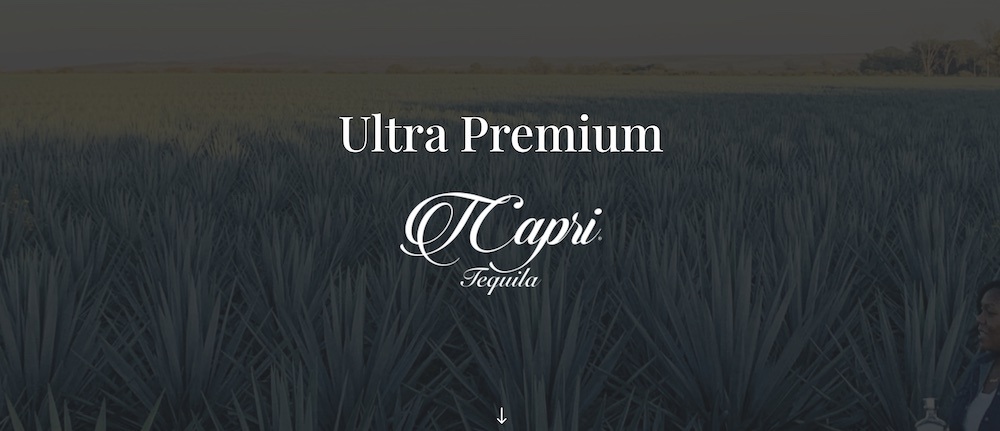
Tiffany Capri Hainsworth, another Black female entrepreneur, started TCapri Tequila. Though based in Maryland, Hainsworth’s search for the perfect tequila took her to Los Altos de Jalisco, located in the highest altitudes of Jalisco, Mexico. Hainsworth advocates highland-grown tequila, believing it to be where only the sweetest agave can be sourced.
TCapri is branded as an “ultra-premium” tequila and is currently only available as a Blanco.
Anteel Tequila
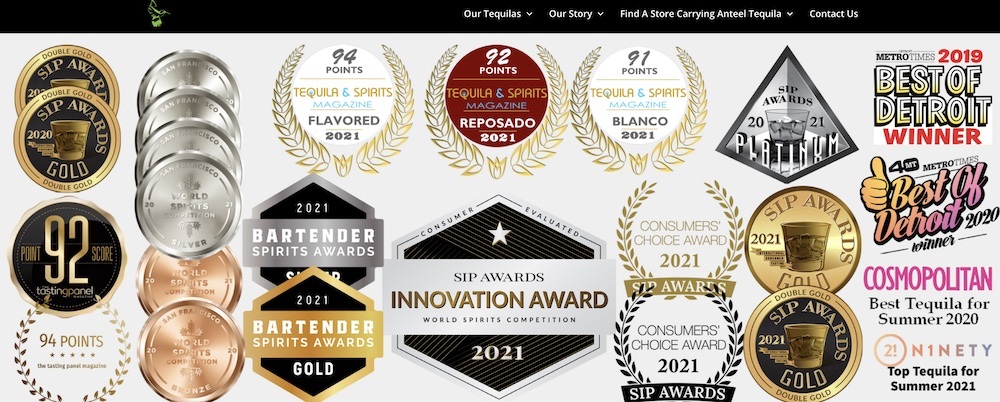
Though third on this list of Black entrepreneurs, when she founded Anteel Tequila, Nayana Ferguson became the first Black woman to co-found and own a tequila company. Anteel Tequila is truly a craft tequila, winning numerous awards.
Anteel finds its unique flavors as a blend of lowland and highland blue agave. The company attributes the smooth taste of Anteel Tequila to it being twice distilled using spring water and then oxygenated and cold-filtered.
Anteel has several flavored options, including Coconut Lime Blanco and Blood Orange Blanco. Antel also comes in unflavored Blanco and Reposado varieties.
Leyendo de México

The fourth and final Melly Barajas brand on this list is Leyendo de México. One of the more expensive brands, Leyendo de México, often comes in premium, limited-edition bottles flaked with 24-karat gold.
While many of the tequilas on this list are marketed to younger or newer tequila drinkers, Leyendo de México is representative of the classic tequila taste, hence the name, which means “Legend of Mexico.”
Leyendo de México comes in Blanco, Reposado, Añejo, and an “extra-aged” version stored in whiskey barrels for nine years after distillation. If you have the chance to try only one Melly Barajas tequila, it should be this one.
21 Seeds Tequila

Kat Hantas, Nicole Hantas-Emanuel, and Sarika Singh founded 21 Seeds Tequila after accidentally discovering that tequila makes a fabulous spritz. So they found a partner distillery in Jalisco and began distilling their own tequila and infusing it with delicious flavors.
21 Seeds Tequila is currently offered in Valencia Orange, Grapefruit Hibiscus, and Cucumber Jalapeño varieties. Though it’s the newest brand on our list, it has already won several awards, including being named a Top 100 Spirit.
Real Minero

Graciela Angeles owns and operates Real Minero, which is produced in Santa Catarina Minas, Oaxaca. Real Minero is known traditionally as a mezcal, but it does not use the word on its bottles or marketing materials. Instead, Real Minero is branded as “agave spirits,” though it is manufactured the same way as it was when they called it a mezcal.
At more than $180 per bottle, Real Minero is one of the most expensive mezcal-like drinks out there, and aficionados say it is well worth the premium price.
Did you Know? Tequila vs. Mezcal: The Difference
Most people know tequila and mezcal as two prominent Mexican liquors, and some may even know they are both distilled from agave. However, many are fuzzy about the exact differences between them. Here is an explanation.
Tequila
Tequila is made from the blue agave plant, found in the lowlands and highlands of Jalisco, Mexico. They only grow in this area in significant quantities because they depend on reddish, volcanic soil in this region for proper nourishment.
Mexico regulates tequila closely, and like champagne, spirits distilled from the blue agave plant can only be called tequila if they come from the state of Jalisco or some of the municipalities in the states of Guanajuato, Michoacán, Nayarit, and Tamaulipas.
Mezcal
Mezcal can be made from multiple types of the agave plant, especially the tobalá, tobaziche, tepeztate, arroqueño and espadín varieties. Together, these agave varieties make up more than 90% of produced mezcal. Mezcal has a smokier flavor than tequila, akin to the huskiness of a heavily peated Scotch. Its unique qualities take a bit of getting used to and is probably why the spirit hasn’t caught on as much in the United States… yet.
Most mezcal is produced in the state of Oaxaca, but it can also come from Durango, Guanajuato, Guerrero, San Luis Potosi, Tamaulipas, Zacatecas, Michoacán, and Puebla. The Mexican government also certifies the production of Mezcal.
Didn’t Tequila Used to Have a Worm in It?

You may have heard that tequila has a worm at the bottom of the bottle, and if you eat it, you will hallucinate. This is a two-part myth that many still believe today. In fact, tequila has never had a worm, though some mezcal does.
The Truth Behind the Mezcal Worm
Though people have been drinking mezcal for thousands of years, it wasn’t until the 1950s that a mezcal maker started adding worms to his bottles as a marketing strategy. Eating the mezcal worm has recently become popular at bachelorette parties in Mexico, where the maid of honor swallows it as a rite of passage.
Related Questions
1. What is reposado in reference to tequila?
Like Scotch and some other spirits, distillers often age tequila in barrels to refine its taste and add flavors. A tequila reposado has been aged in oak barrels for two to twelve months. The barrels used are usually former whiskey barrels imported to Mexico from the United States
2. Why is Jalisco, Mexico a center for tequila production?
The Jalisco highlands are famous for the blue agave plants used in tequila. Blue agave grows well in the soil, which has clay, iron, and even volcanic features. Technically, the blue agave plant used in tequila production is properly known as the Blue Agave Tequilana Weber.

Nathaniell
What's up ladies and dudes! Great to finally meet you, and I hope you enjoyed this post. My name is Nathaniell and I'm the owner of One More Cup of Coffee. I started my first online business in 2010 promoting computer software and now I help newbies start their own businesses. Sign up for my #1 recommended training course and learn how to start your business for FREE!

 6 Simple Reasons Your NFTs Aren’t Selling
6 Simple Reasons Your NFTs Aren’t Selling
Leave a Reply